KARACHI Veteran mountaineer and environmentalist Nazir Sabir makes climbing 8,000-metre-plus mountains sound a lot easier than it actually is. At least this is how it appeared during a lecture he delivered on Thursday as he took all those present on a virtual tour of the Roof of the World by relating the many adventures he has had in his over three-decade-long career scaling the mighty peaks of the Karakoram and the Himalaya ranges, among others.
Mr Sabir made use of a series of breathtaking slides to visually showcase his ongoing journey, which began in a small hamlet of Hunza and has taken him to the awe-inspiring summits of Everest and K2, the two highest mountains in the world.
The decorated climber - who has received both the President's Pride of Performance award and the Sitara-i-Imtiaz - was delivering a lecture here titled 'Reaching for the skies' as part of the Aga Khan University's special lecture series.
Mr Sabir, who was sharing his experiences in Karachi for the first time, said he was 'born in the lap of the Karakoram', 30 kilometres from China and the Wakhan Corridor. Referring to the majestic scenery that surrounded his native village he said 'I often complained to God why my world was so small. I thought if I could climb the mountains I could see Gilgit, Pindi, Karachi and even America!'
The marvellous 7,788m Rakaposhi was a constant childhood companion, as the young Nazir Sabir fixed his gaze upon it everyday while walking a total of 12km to and from school. He added that up till the seventies, there was only one junior high school in the entire Hunza Valley.
The romance and pull of the mountains was too strong for him to resist, and the childhood curiosity soon developed into a life-long passion for Mr Sabir.
'Spiritual connection'
'(I have) a spiritual connection with the mountains. Your belief in eternity and the greatness of nature is strengthened. It makes you feel how little you are,' said the experienced climber in a moment of mystical clarity.
However, as Nazir Sabir explained, it has not been a smooth ascent to the top, as he has faced tragedy multiple times. 'I've lost almost 57 friends while climbing. My own brother - a commando in the armed forces - was killed in an avalanche during an expedition.'
He said the tragedy tamed his 'wild streak' and he nixed such ambitious plans as wanting to climb K2 alone and going into China. He started focusing more on his family, tending to his parents and sisters, while he also got married.
'I have looked very closely into the eyes of death. But why continue?' he asked. 'You put your life at the mercy of the forces of nature. After receiving a heavy beating at the hands of nature you become a more serious person. You discover yourself, your strengths and your weaknesses. Each time I go into the mountains it is a pilgrimage. I write my will before I leave base camp,' he observed starkly.
Tourism potential
Mr Sabir said that Pakistan's mountains had tremendous potential; however, our own incompetence was responsible for not attracting more of the world's mountaineers and tourists to the country's towering peaks. 'Once climbers have been to Pakistan, they don't go back to Nepal. Nepalese mountains are more feminine. Thanks to our people our green belt has gone. We have not been able to claim (even a) tiny bit of the global tourism (market) because of our own doing.'
He was also critical of projections in sections of the media that linked the relatively more peaceful Northern Areas of Pakistan with the insurgency-hit tribal belt.
Nazir Sabir said the main problem in attracting climbers and tourists was that of infrastructure. 'We need to know our own country. We need to know our own people. We need to respect each other.'
He likened the ups and downs of life with mountain climbing and advised the audience to learn from failures. 'You climb your own mountains every day. You reach your own summits everyday. You fall. You learn from falling. My list of failures is a lot longer than that of my successes. Mountains accept you as a little particle of nature - dead or alive. I have seen many bodies lying frozen over the years.'
Nazir Sabir's slides - of which he has over 5,000 - illustrated his remarkable journey. There were serene views of the fruit trees and terraced, lush green wheat fields of the Hunza Valley, while the mighty Indus gushed along, fed by glaciers, in its journey to the Arabian Sea.
Rakaposhi was seen from Hunza, while there were slides showcasing many of the peaks Mr Sabir has scaled, along with shots of fellow climbers, especially his Japanese comrades, many of whom he lost in various expeditions. Other notable peaks included members of the Gasherbrum family, Broad Peak, the imposing Nanga Parbat, or 'killer mountain', the oddly shaped Ladyfinger as well as the king - K2, which Mr Sabir scaled in 1981 via the West Ridge/South-West Ridge for the first time in the world.
Slides also showcased the massive Baltoro Glacier as well as distant views of Siachen, the highest battlefield in the world. As Nazir Sabir put it, the presence of the armed forces in the region was a blessing in disguise for climbers, as army helicopters provided air-lifts to base camps as well as help in case of emergencies.
But perhaps the images that moved the audience the most were that of Mr Sabir's conquest of Mt Everest. He was the first Pakistani to reach the summit of the highest mountain in the world in the year 2000, after an aborted attempt in 1997. A slide showed a scene of cosmic, inexplicable beauty as the photograph captured celestial cloud formations above Everest, along with a golden sunset in another.
The audience broke out into spontaneous applause when a slide showed Mr Sabir holding up the Pakistani flag on Everest's summit, as it was a refreshing reminder to see that positive things, too, can come out of this beleaguered nation.















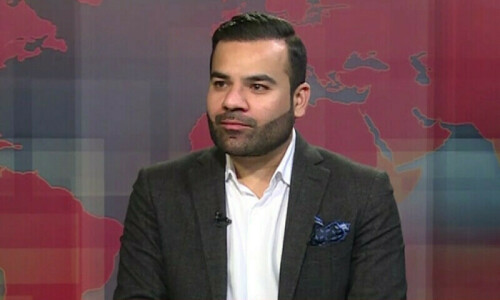
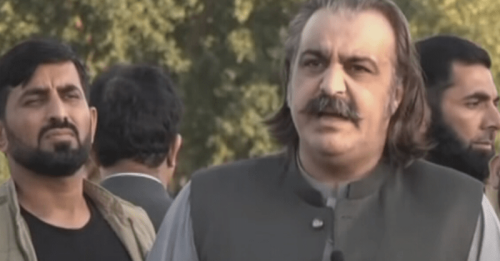

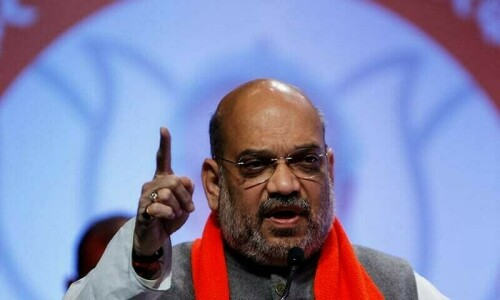



















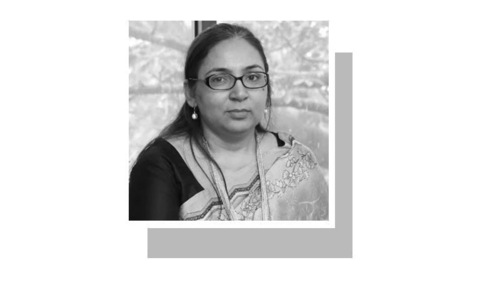


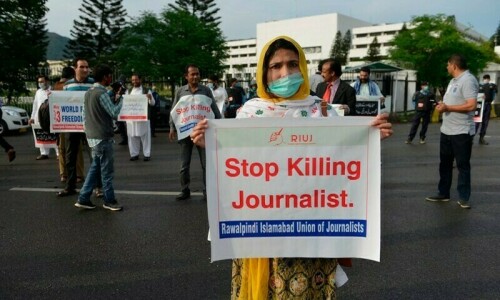


Dear visitor, the comments section is undergoing an overhaul and will return soon.